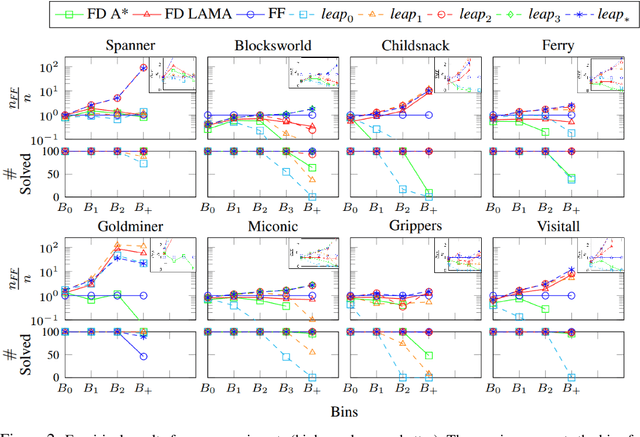Learning Generalized Relational Heuristic Networks for Model-Agnostic Planning
Paper and Code
Jul 10, 2020


Computing goal-directed behavior (sequential decision-making, or planning) is essential to designing efficient AI systems. Due to the computational complexity of planning, current approaches rely primarily upon hand-coded symbolic domain models and hand-coded heuristic-function generators for efficiency. Learned heuristics for such problems have been of limited utility as they are difficult to apply to problems with objects and object quantities that are significantly different from those in the training data. This paper develops a new approach for learning generalized heuristics in the absence of symbolic domain models using deep neural networks that utilize an input predicate vocabulary but are agnostic to object names and quantities. It uses an abstract state representation to facilitate data efficient, generalizable learning. Empirical evaluation on a range of benchmark domains show that in contrast to prior approaches, generalized heuristics computed by this method can be transferred easily to problems with different objects and with object quantities much larger than those in the training data.
 Add to Chrome
Add to Chrome Add to Firefox
Add to Firefox Add to Edge
Add to Edge